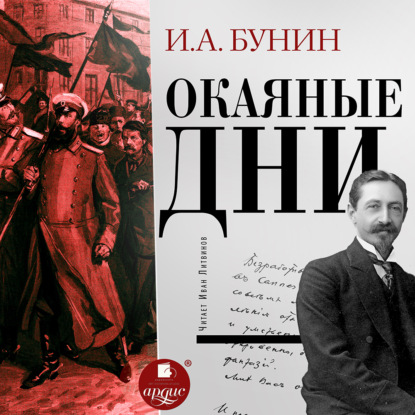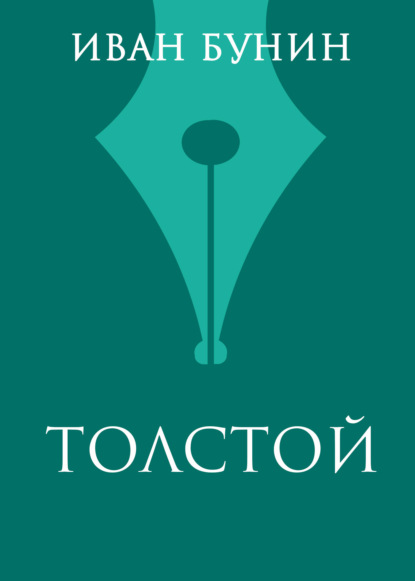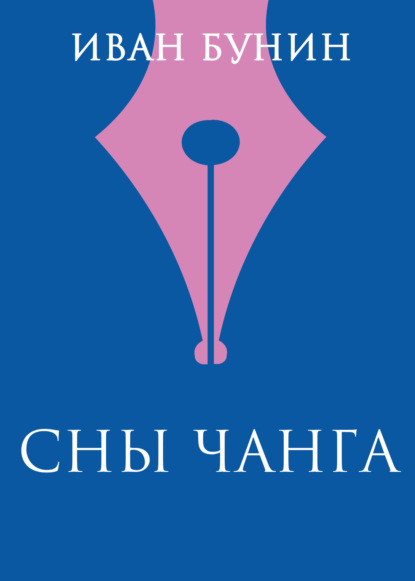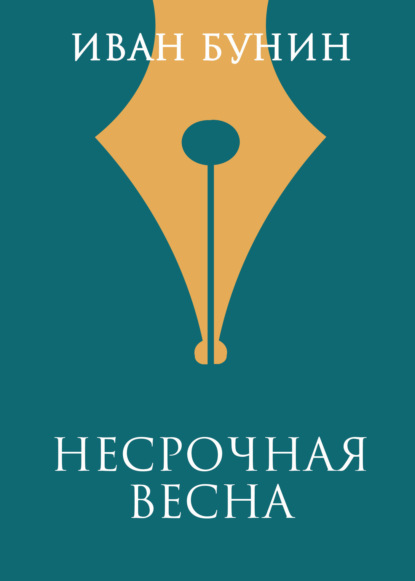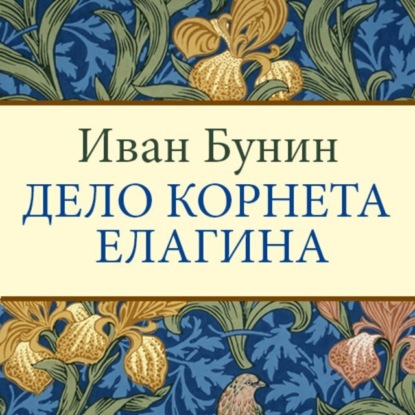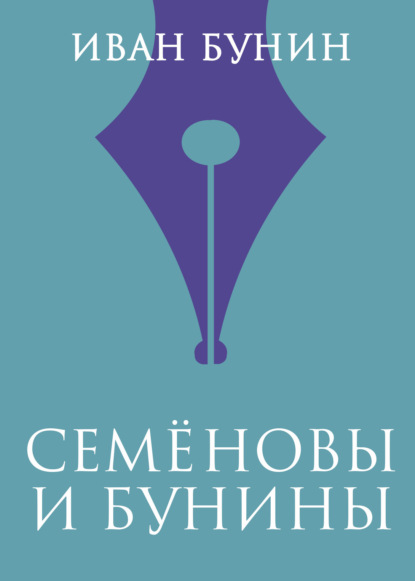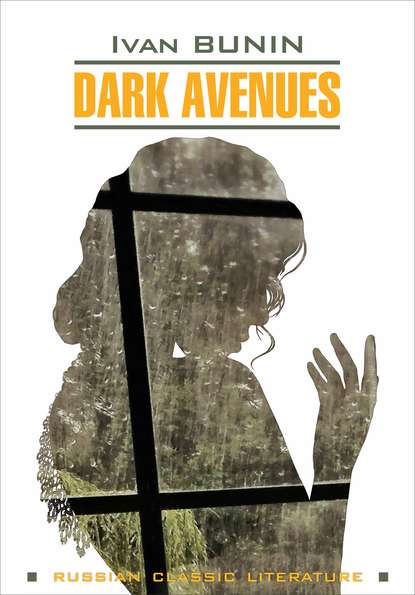
Полная версия:
Иван Алексеевич Бунин Dark Avenues / Темные аллеи. Книга для чтения на английском языке
- + Увеличить шрифт
- - Уменьшить шрифт

Ivan Bunin / Иван Бунин
Dark Avenues / Темные аллеи
“I have been keeping an eye on Bunin’s brilliant talent. He really is the enemy.”
Andrei Bely“Your influence is truly beyond words… I do not know any other writer whose external world is so closely tied to another, whose sensations are more exact and indispensable, and whose world is more genuine and also more unexpected than yours.”
André Gide“He was a great stylist who wrote very suggestively. He didn’t spray us with ideologies or worries. His writing is pure poetry.”
Andrei Makine“A most powerful ‘connoisseur of colours’. One could write an entire dissertation on his colour schemes.”
Vladimir Nabokov“You have, Mr Bunin, thoroughly explored the soul of vanished Russia, and in doing so you have most deservedly continued the glorious traditions of the great Russian literature.”
Professor Wilhelm Nordenson, at the 1933 Nobel Prize banquetPart One
Translation Copyriht © Hugh Aplin, 2008
Published by Alma Classics Ltd
© КАРО, 2019
Dark Avenues
In the cold, foul weather of autumn, on one of Tula’s highways, flooded by rains and indented with many black ruts, up to a long hut with a government posting station in one wing and private living quarters where one could rest or spend the night, have dinner or ask for the samovar in the other, there drove a tarantass[1], bespattered with mud and with its top half-raised, pulled by three quite ordinary horses with their tails tied up out of the slush. On the box of the tarantass sat a sturdy peasant in a tightly belted, heavy cloth coat, serious and dark-faced, with a sparse, jet-black beard, looking like a robber of old, and inside the tarantass sat a svelte old military man in a large peaked cap[2] and a grey greatcoat with an upright beaver collar of Nicholas I’s time, still black-browed, but with white whiskers which joined up with similar sideburns; his chin was shaved, and his appearance as a whole bore that resemblance[3] to Alexander II[4] which was so prevalent among military men at the time of his reign; his gaze was both enquiring, stern and at the same time weary.
When the horses came to a halt[5], he threw a leg in a level-topped military boot out of the tarantass and, holding back the skirts of the greatcoat with suede-gloved hands, ran up onto the porch of the hut.
“To the left, Your Excellency,” the coachman cried out rudely from the box and, stooping slightly on the threshold because of his height, the man went into the little entrance hall, then to the left into the living quarters.
The living quarters were warm, dry and tidy: there was a new, goldcoloured icon in the left-hand corner, beneath it a table covered with a clean, unbleached tablecloth, and at the table there were benches, scrubbed clean; the kitchen stove, occupying the far right-hand corner, was newly white with chalk; nearer stood something like an ottoman, covered with mottled rugs, with its folding end resting against the side of the stove; from behind the stove door came the sweet smell of cabbage soup – cabbage boiled down until soft, beef and bay leaves.
The new arrival threw his greatcoat down on a bench and proved to be still more svelte in just his dress uniform[6] and long boots; then he took off the gloves and cap, and with a weary air ran a pale, thin hand over his head – his grey hair, combed down on his temples towards the corners of his eyes, was slightly curling; his attractive, elongated face with dark eyes retained here and there minor traces of smallpox. There was nobody in the living quarters and, opening the door into the entrance hall a little, he cried out in an unfriendly way:
“Hey, anybody there?”
Immediately thereafter into the living quarters came a dark-haired woman, also black-browed and also still unusually attractive for her age, looking like an elderly gypsy, with dark down on her upper lip and alongside her cheeks, light on her feet, but plump, with large breasts under her red blouse and a triangular stomach like a goose’s under her black woollen skirt.
“Welcome, Your Excellency,” she said. “Would you be wanting to eat, or would you like the samovar?”
The new arrival threw a cursory glance at her rounded shoulders and light feet in worn, red Tatar slippers, and curtly, inattentively replied:
“The samovar. Are you the mistress here or a servant?”
“The mistress, Your Excellency.”
“The place is yours then?”
“Yes, sir. Mine.”
“How’s that, then? A widow, are you, that you run things yourself?”
“Not a widow, Your Excellency, but you do have to make a living[7]. And I like being in charge.”
“Right, right. That’s good. And how clean and pleasant you have it.”
The woman was all the time looking at him searchingly, with her eyes slightly narrowed.
“I like cleanliness too,” she replied. “I grew up with gentlefolk, after all, so how could I fail to know how to keep myself respectable, Nikolai Alexeyevich?”
He straightened up quickly, opened his eyes wide and blushed.
“Nadezhda! Is it you?” he said hurriedly.
“It’s me, Nikolai Alexeyevich,” she replied.
“My God, my God!” he said, sitting down on a bench and staring straight at her. “Who could have thought it! How many years since we last saw one another? About thirty-five?”
“Thirty, Nikolai Alexeyevich. I’m forty-eight now, and you’re getting on for sixty, I think.”
“Something like that… My God, how strange!”
“What’s strange, sir?”
“But everything, everything… How can you not understand!”
His weariness and absent-mindedness had vanished; he stood up and began walking decisively around the room, gazing at the floor. Then he stopped and, blushing through his grey hair, began to speak:
“I know nothing about you from that time on. How did you end up here? Why didn’t you stay with your owners?”
“Soon after you, my owners gave me my freedom.”
“And where did you live afterwards?”
“It’s a long story, sir.”
“You weren’t married, you say?”
“No, I wasn’t.”
“Why? With the sort of beauty that you had?”
“I couldn’t do it.”
“Why not? What do you mean?”
“What is there to explain? You probably remember how I loved you.”
He blushed to the point of tears and, with a frown, again began his pacing.
“Everything passes, my friend,” he began mumbling. “Love, youth – everything, everything. The ordinary, vulgar story. Everything passes with the years. How does the Book of Job put it? ‘Thou shalt remember it as waters that pass away[8]’.”
“God treats people differently, Nikolai Alexeyevich. Youth passes for everyone, but love’s a different matter.”
He raised his head and, stopping, gave a painful grin:
“But I mean, you couldn’t have loved me all your life!”
“But I could. However much time passed, I kept on living for the one thing. I knew the former you was long gone, that for you it was as if there had never even been anything, but then… It’s too late for reproaches now, but you know, it’s true, you did abandon me ever so heartlessly – how many times did I want to lay hands upon myself out of hurt alone, not even to mention everything else. There was a time, after all, Nikolai Alexeyevich, when I called you Nikolenka, and you called me – do you remember what? And you were good enough to keep on reciting me poetry about various ‘dark avenues’,” she added with an unfriendly smile.
“Ah, how good-looking you were!” he said, shaking his head. “How ardent, how beautiful! What a figure, what eyes! Do you remember how everyone used to stare at you?”
“I do, sir. You were extremely good-looking too. And you know, it was you I gave my beauty to, my ardour. How on earth can such a thing be forgotten?”
“Ah! Everything passes. Everything gets forgotten.”
“Everything passes, but not everything gets forgotten.”
“Go away,” he said, turning and going up to the window. “Please, go away.”
And taking out a handkerchief and pressing it to his eyes, speaking rapidly he added:
“If only God can forgive me. For you, evidently, have forgiven me.”
She went up to the door and paused:
“No, Nikolai Alexeyevich, I haven’t. Since our conversation has touched upon our feelings, I’ll tell you straight: I never could forgive you. Just as there was nothing on earth dearer to me at that time than you, so was there nothing afterwards either. And that’s why I can’t forgive you. Well, but what sense is there in remembering, the dead don’t get brought back from the graveyard.”
“No, that’s right, there’s no point, order the horses to be brought up,” he replied, moving away from the window with a face already stern. “I’ll tell you one thing: I’ve never been happy in life, please don’t think that. I’m sorry that I may be wounding your pride, but I’ll tell you frankly – I was madly in love with my wife. But she was unfaithful, and abandoned me even more insultingly than I did you. I adored my son – while he was growing, what hopes did I not place on him! But he turned out a good-for-nothing, a spendthrift, insolent, without a heart, without honour, without a conscience… However, all that is the most ordinary, vulgar story too. Keep well, dear friend. I think I too lost in you the dearest thing I had in life.”
She went up to him and kissed his hand, and he kissed hers.
“Order the horses…”
When they had set off on their way, he thought gloomily: “Yes, how delightful she was! Magically beautiful!” He remembered with shame his final words and the fact that he had kissed her hand, and was immediately ashamed of his shame. “Isn’t it the truth, then, that she gave me the best moments of my life?”
Close to setting, a pale sun had peeped out. The coachman drove at a trot[9], ever shifting from one black rut to another, choosing the less muddy ones, and thinking about something too. Finally he said with serious rudeness:
“She kept on looking out of the window, Your Excellency, as we were leaving. You’ve probably been good enough to know her a long time?”
“A long time, Klim.”
“That woman’s got her head on her shoulders. And they say she keeps on getting richer. She lends money on interest[10].”
“That doesn’t mean anything.”
“What do you mean, it doesn’t! Who doesn’t want to live a bit better! If you lend with a conscience, there’s nothing much wrong with that. And they say she’s fair on that score. But she’s a harsh one! If you haven’t repaid on time, you’ve only yourself to blame.”
“Yes, that’s right, you’ve only yourself to blame… Keep driving on, please, I’m afraid we might miss the train…”
The low sun shone yellow on the empty fields, the horses splashed steadily through the puddles. He gazed at the fleetingly glimpsed horseshoes, his black brows knitted, and thought:
“Yes, you’ve only yourself to blame. Yes, of course they were the best moments. And not merely the best, but truly magical! ‘All round the scarlet dog rose bloomed, the avenues of dark limes stood…’[11] But my God, what would have happened later on? What if I hadn’t abandoned her? What nonsense! This Nadezhda, not the keeper of a lodging house, but my wife, the mistress of my house in St Petersburg, the mother of my children?”
And closing his eyes, he shook his head.
20th October 1938The Caucasus
On arriving in Moscow, I put up furtively at[12] inconspicuous rooms in a side street near the Arbat and led the tiresome life of a recluse – from meeting to meeting with her. During those days she visited me just three times, and each time she came in hurriedly with the words:
“I’ve only come for a minute…”
She was pale with the beautiful pallor of an excited woman in love, her voice would break, and the way that, after tossing her umbrella down anywhere, she would hurry to raise her veil and embrace me struck me with pity and delight.
“It seems to me,” she would say, “he suspects something, that he even knows something – perhaps he’s read one of your letters, found a key to open my desk… I believe he’s capable of anything with his cruel, proud character. Once he said to me outright: ‘I won’t stop at anything in defending my honour, the honour of a husband and an officer!’ Now for some reason he’s watching literally my every move, and for our plan to succeed I have to be terribly careful. He’s already agreed to let me go, so vehemently did I suggest to him I’d die if I didn’t see the south, the sea, but for God’s sake be patient!”
Our plan was audacious: to leave for the coast of the Caucasus by one and the same train and to live there in some completely wild place for three or four weeks. I knew that coast, I had once lived for some time near Sochi – when young and single – I had those autumn evenings amidst black cypresses by the cold, grey waves committed to memory[13] for the rest of my life… And she would turn pale when I said: “And now I’ll be there with you, in mountainous jungle, by the tropical sea…” We did not believe in the realization of our plan until the last minute – too great a happiness did it seem to us.
* * *It was cold and wet in Moscow, it looked as if the summer was already over and would not return, it was dirty, murky, the crows were cawing, the streets glistened wet and black with the opened umbrellas of passers-by and the raised tops of cab men’s droshkies[14], shaking as they sped along. And it was a dark, repulsive evening as I drove to the station, and everything inside me was freezing from anxiety and the cold. I ran through the station and along the platform with my hat pulled down towards my eyes and my face buried in the collar of my coat.
In the small first-class compartment which I had booked in advance, the rain was pouring noisily over the roof. I lowered the window blind at once and, as soon as the porter, wiping his wet hand on his white apron, had taken his tip and gone, I locked the door. Then I opened the blind a little and froze, my eyes fixed upon the heterogeneous crowds, scurrying back and forth beside the carriage with their things in the dark light of the station lamps. We had agreed that I would arrive at the station as early as possible and she as late as possible, so that I should not somehow bump into her and him on the platform. It was now already time they were here. I looked ever more tensely – still they weren’t here. The second bell rang[15] – I turned cold in fright: she was late, or suddenly at the last minute he had not let her go! But immediately after that I was struck by his tall figure, officer’s peaked cap, tight greatcoat and the suede-gloved hand with which he held her by the arm as he strode out briskly. I recoiled from the window and fell into the corner of the couch. The second-class carriage was next door – in my mind I saw him getting into it with her masterfully, looking around to see if the porter had arranged things for her well, taking off his glove, taking off his cap, kissing her, making the sign of the cross over her… The third bell deafened me, the train moving off plunged me into a state of numbness… The train gathered pace, knocking, rocking, then began moving evenly at full speed… With an icy hand I slipped a ten-rouble note to the conductor who brought her to me and carried her things…
* * *Coming in, she did not even kiss me, only smiled pitifully as she sat down on the couch and took off her hat, unfastening it from her hair.
“I couldn’t eat dinner at all,” she said. “I didn’t think I could sustain this dreadful role through to the end. And I’m terribly thirsty. Give me some Narzan[16], dear,” she said, addressing me intimately for the first the Caucasus time. “I’m convinced he’ll come after me. I gave him two addresses, Gelendzhik and Gagry. Well, and in three or four days he’ll be in Gelendzhik… But who cares, better death than this torment…”
* * *In the morning, when I went out into the corridor, it was sunny and stuffy; from the toilets came the smell of soap, eau de cologne and everything a carriage full of people smells of in the morning. Passing outside the windows, heated up and dull with dust, was the level, scorched steppe, dusty wide roads could be seen, and carts drawn by bullocks, there were glimpses of trackmen’s huts with the canary-yellow circles of sunflowers and scarlet hollyhocks in the front gardens… Further on there began the boundless expanse of bare plains with barrows and burial grounds, the unendurable dry sun, the sky resembling a dusty cloud, then the spectres of the first mountains on the horizon…
* * *From both Gelendzhik and Gagry she sent him a postcard and wrote that she did not yet know where she would stay.
Then we went down along the coast towards the south.
* * *We found a primeval place, overgrown with forests of plane trees, flowering shrubs, mahogany, magnolias and pomegranate trees, among which there rose fan palms and the cypresses showed black…
I would wake up early and, while she slept, before tea, which we drank around seven o’clock, walk over the hills to the woodland thickets. The hot sun was already strong, clear and joyous. In the woods the fragrant azure mist was shining, dispersing and melting away, beyond the distant wooded summits gleamed the everlasting whiteness of the snowy mountains… I would go back through our village’s sultry marketplace with its smell of pressed dung[17] burning from the chimneys; trade was seething there, it was crowded with people, saddle horses and donkeys – a multitude of mountaineers of different races assembled there at the market in the mornings – Circassian girls floated about in long, black clothes down to the ground and red slippers, with their heads enfolded in something black, and with quick, birdlike glances flashing at times from that funereal enfoldment.
Later we would leave for the seashore, always completely deserted, bathe and lie in the sun right up until lunch. After lunch – always panfried fish, white wine, nuts and fruit – in the sultry twilight of our hut, under its tiled roof, hot, gay strips of light reached through the slatted shutters.
When the heat abated and we opened the window, the part of the sea that was visible from it between the cypresses standing on the slope below us had the colour of violets and lay so flat and peaceful that it seemed there would never be an end to this tranquillity, to this beauty.
At sunset, amazing clouds often piled up beyond the sea; their glow was so magnificent that at times she would lie down on the ottoman, cover her face with a gauze scarf and cry: another two or three weeks – and Moscow again!
The nights were warm and impenetrable, in the black darkness fireflies floated, twinkled, shone with a topaz light, tree frogs clanked like little glass bells. When the eye grew accustomed[18] to the dark, the stars and the crests of the mountains stood out on high, and above the village were the outlines of trees that we did not notice in the daytime. And all night, from there, from the inn, could be heard the muffled banging of a drum and the throaty, doleful, hopelessly happy wailing of what always seemed to be one and the same endless song.
Not far from us, in a coastal ravine descending out of the wood to the sea, a shallow, limpid little river leapt quickly along its stony bed. How wonderfully its lustre rippled, seethed, at that mysterious hour when, like some marvellous creature, the late moon looked out intently from behind the mountains and the woods.
Sometimes during the night, terrifying clouds would approach from the mountains; there would be an angry storm; in the noisy, sepulchral blackness of the woods, magical green abysses were continually gaping open, and cracking out in the heavenly heights there were antediluvian claps of thunder. Then in the woods eaglets would wake up and mew, the snow leopard would roar, the jackals would yelp… Once a whole pack of them came running to our lighted window – on such nights they always congregate around dwellings – we opened the window and looked at them from above, and they stood in the gleaming torrent of rain and yelped, asking to come in… She cried for joy, looking at them.
* * *He searched for her in Gelendzhik, in Gagry, in Sochi. The day after his arrival in Sochi, he bathed in the sea in the morning, then shaved, put on clean linen, a snow-white tunic, had lunch at his hotel on the terrace of the restaurant, drank a bottle of champagne, had coffee with chartreuse[19], unhurriedly smoked a cigar. Returning to his room, he lay down on the couch and shot himself in the temples with two revolvers.
12th November 1937A Ballad
On the eve of the big winter holidays the country house was always heated up like a bathhouse and presented a strange picture, for it consisted of spacious and low rooms, the doors of which were all wide open throughout – from the entrance hall to the divan room, situated at the very end of the house – and its red corners[20] gleamed with wax candles and lamps in front of the icons.
On the eve of those holidays, they washed the smooth oak floors – which soon dried out from the heating – everywhere in the house, and then carpeted them with clean rugs; they set out in their places in the very best order the furnishings that had been moved aside for the period of work, and in the corners, in front of the gilded and silver settings of the icons, they lit the lamps and the candles and extinguished all other lights. By this time the winter night was already darkly blue outside the windows and everyone dispersed to their own sleeping quarters. Complete quiet was then established in the house, a peace that was reverential and seemingly waiting for something, and which could not have been more in keeping with the sacred nocturnal appearance of the mournfully and touchingly illumined icons.
In the winter the wandering pilgrim Mashenka was sometimes a guest on the estate, grey-haired, withered and tiny, like a little girl. And it was just she alone in all the house who did not sleep on such nights: arriving in the hallway from the servants’ quarters after supper and removing the felt boots[21] from her little, woollen-stockinged feet, she would go noiselessly over the soft rugs through all those hot, mysteriously lit rooms, kneel down everywhere, cross herself, bow down before the icons, and then go back to the hallway, sit down on the black chest that had stood in it from time immemorial, and in a low voice recite prayers, psalms, or else simply talk to herself. It was thus I found out one day about this “beast of God, the Lord’s wolf”: I heard Mashenka praying to him.
I could not sleep, and I went out late at night into the reception hall to go through to the divan room and there get something to read from the bookcases. Mashenka did not hear me. She was sitting saying something in the dark hallway. Pausing, I listened closely. She was reciting psalms from memory.
“Hear my prayer, O Lord, and give ear unto my cry,” she said, without any expression. “Hold not thy peace at my tears, for I am a stranger with thee, and a sojourner on the earth, like all my fathers were…[22]
“Say unto God: how terrible art thou in thy works![23]
“He that dwelleth in the secret place of the most High shall abide under the shadow of the Almighty… Thou shalt tread upon the lion and adder, the young lion and the dragon shalt thou trample under foot…”[24]
At the last words she quietly but firmly raised her voice and pronounced them with conviction: trample upon the lion and the dragon. Then she paused and, after slowly sighing, spoke thus, as if conversing with somebody:
“For every beast of the forest is his, and the cattle upon a thousand hills…”[25]
I peeped into the hallway: she was sitting on the chest with her little, woollen-stockinged feet hanging down from it evenly and holding her arms crossed at her breast. She was looking straight ahead, not seeing me. Then she raised her eyes to the ceiling and uttered distinctly:
“And thou, beast of God, the Lord’s wolf, pray for us to the Queen of Heaven.”
I approached and said softly:
“Mashenka, don’t be afraid, it’s me.”
She let her arms drop, stood up, gave a low bow:
“Hello, sir. No, sir, I’m not afraid. What have I got to be afraid of now? It was in my youth I was silly, afraid of everything. The dark-eyed demon troubled me.”


